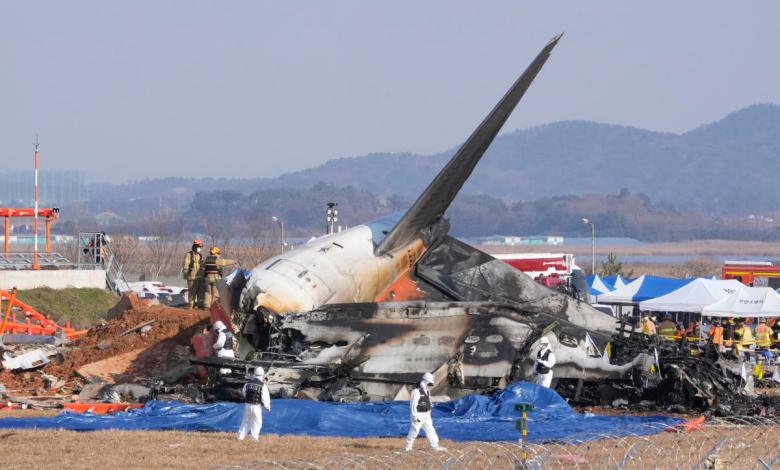The Jet disaster in South Korea marks another setback for Boeing

WASHINGTON (AP) – The marchers strike. Another safety issue involving its best-selling plane is in trouble. A falling stock price.
2024 was already a disappointing year for Boeing, the American aerospace giant. But when one of the company’s planes crashed in South Korea on Sunday, all but two of the 181 people on board died, ending a very bad year for Boeing.
The cause of the crash is still under investigation, and aviation experts were quick to separate Sunday’s incident from the company’s previous safety issues.
Trusted and exciting news every day, right in your inbox
See for yourself — Yodel is your go-to source for daily news, entertainment and exciting news.
Alan Price, a former chief pilot at Delta Air Lines who is now a consultant, said it would be unfair to link Sunday’s incident to two fatal crashes involving Boeing’s troubled 737 Max in 2018 and 2019. In January of this year, the door plug. blew up the 737 Max in mid-flight, raising many questions about the plane.
The Boeing 737-800 that crashed in Korea, Price noted, “is a very proven aircraft. “It’s different from Max … It’s a very safe plane.”
For decades, Boeing has held sway as one of America’s manufacturing giants. But the repeated worries of the past year were taking their toll. The company’s stock price is down more than 30% in 2024.
The company’s safety reputation has been particularly damaged by the 737 Max crashes, which occurred off the coast of Indonesia and Ethiopia less than five months apart in 2018 and 2019 and left 346 people on board. In the five years since then, Boeing has lost more than $23 billion. It is also lagging behind its European rival, Airbus, in sales and delivery of new aircraft.
Last fall, 33,000 Boeing workers went on strike, crippling production of the 737 Max, the company’s best-selling 777 jetliner and 767 freighter. The walkout lasted seven weeks, until members of the International Association of Machinists and Aerospace Workers agreed to a demand that included a 38% wage increase over four years.
In January, a door plug blew off a 737 Max during an Alaska Airlines flight. Federal regulators responded by placing restrictions on Boeing aircraft production that they said would remain in place until they felt confident about the safety of production at the company.
In July, Boeing agreed to plead guilty to conspiracy to defraud Federal Aviation Administration regulators who approved the 737 Max. Acting on Boeing’s incomplete disclosures, the FAA mandated minimal, computer-based training instead of intensive training in flight simulators. Simulator training would have increased the cost for airlines to use the Max and may have pushed others to buy planes from Airbus instead. (Prosecutors say they have no evidence to dispute that Boeing’s manipulation played a role in the accidents.)
But the settlement was rejected this month by Texas federal judge Reed O’Connor, who ruled that the diversity, inclusion and equity or DEI policies of the state and Boeing could lead to race being a factor in the selection of the chief executive. Boeing’s compliance with the agreement.
Boeing wanted to change its culture. Under intense pressure over security issues, David Calhoun stepped down as CEO in August. Since January, 70,000 Boeing employees have participated in meetings to discuss ways to improve safety.
Source link

